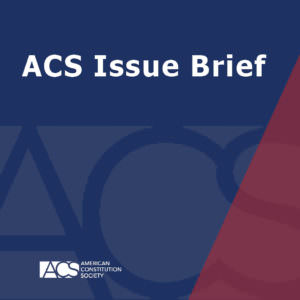Access to Data Across Borders: The Critical Role for Congress to Play Now
Associate Professor of Law, American University Washington College of Law
October 24, 2017
In this Issue Brief, Jennifer Daskal analyzes the issues and interests at stake in the United States v. Microsoft Corp. case now pending before the U.S. Supreme Court, and concludes that they are matters more appropriately resolved by Congress, not the judiciary. The heart of the problem, Daskal explains, is that the Stored Communications Act, which regulates the disclosure of electronic communications such as email, was passed more than twenty years ago, before there was a globally connected Internet, and the statute is silent as to its territorial reach. In the “Microsoft Ireland case,” the government seeks access to emails stored on a server in Dublin, and Microsoft contends that the government’s request is an illegitimate use of its warrant authority, since the data is located overseas.
Legislative fixes for the challenge of law enforcement needing access to data stored outside the U.S. (and the reciprocal problem of foreign governments wanting access to data stored in the U.S.) have been proposed, including the “International Communications Privacy Act,” which Daskal generally endorses as a good start, though she argues for additional safeguards. “Governments increasingly need digital evidence that is located across borders in the investigation of local crime,” she observes, and “the rules have not yet caught up to that reality.” Congress, she asserts, is more able than the courts to devise a nuanced policy solution that respects the security, privacy, sovereignty, and economic interests at stake.
Read the full issue brief: Access to Data Across Borders: The Critical Role for Congress to Play Now

